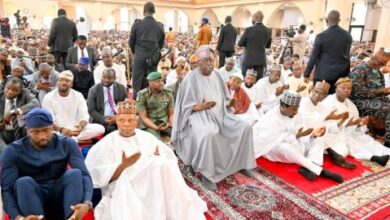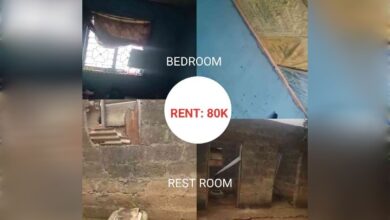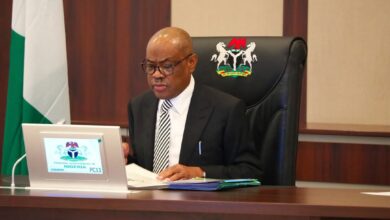World Bank: 75.5% of rural Nigerians live below poverty line

A damning report by the World Bank has revealed that a staggering 75.5% of rural Nigerians are living below the poverty line, highlighting the country’s deepening economic woes.
According to the World Bank’s April 2025 Poverty and Equity Brief for Nigeria, the situation is particularly dire in rural areas, where economic stagnation, high inflation, and insecurity have exacerbated living conditions.
The report noted that 30.9% of Nigerians lived below the international extreme poverty line of $2.15 per person per day in 2018/19, before the COVID-19 pandemic.

Regional disparities are also stark, with the poverty rate in northern geopolitical zones standing at 46.5% in 2018/19, compared to 13.5% in southern zones.
Word bank also highlighted the significant role of education in determining poverty levels, with 79.5% of Nigerians without formal education living in poverty, compared to 25.4% of those with tertiary education.
Stark regional divides cut across the nation. Northern zones recorded 46.5% poverty compared to 13.5% in southern regions.
Nigeria scored 35.1 on the Gini index in 2018/19. The country’s Prosperity Gap reaches 10.2, exceeding most peer nations.
Children bear the heaviest burden of economic hardship. Those aged 0-14 exhibit a 72.5% poverty rate.
Education significantly influences poverty levels. People lacking formal education experience 79.5% poverty rates.
Those completing primary education face 61.9% poverty rates. Secondary education graduates encounter 50% poverty rates.
Tertiary education reduces poverty dramatically, with only 25.4% classified as poor. Education creates clearer paths to prosperity.
Multiple poverty indicators expose widespread deprivation. About 32.6% of Nigerians cannot access standard drinking water.
Another 45.1% lack standard sanitation facilities. Electricity remains unavailable to 39.4% of the population.
Educational barriers affect families nationwide. About 17.6% of adults never completed primary education.
Schools report 9% of school-aged children remain unenrolled. Poverty reduction stalled even before the pandemic struck.
Annual poverty reduction crawled at half a percentage point since 2010. Urban poor see virtually no improvement in living standards.
Employment opportunities that could lift households from poverty remain scarce. Recent reforms target economic stabilization.
High inflation continues to erode household purchasing power. Urban wages fail to match rapidly rising costs.
World Bank demands immediate policy intervention. Officials must shield vulnerable populations from inflation’s devastating effects.
The government must prioritize productive job creation immediately. Nigeria’s worsening poverty crisis requires urgent action.
Post Views: 17





